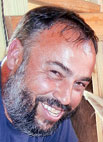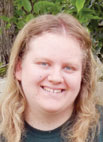
“Dunlap’s Spring Breeze” sounds like the name of a sweet-smelling air freshener or maybe the newest brand of antibacterial hand soap. But in reality it’s the registered name of Paul and Teresa Schot’s milk cow. No wonder they call her “Daisy.”
Living on a 25-acre farm in Bruno, Ark., Paul and Teresa attempt to keep about 40 chickens, a couple dozen ducks, dogs and several head of cattle, including Daisy, on an even keel. They manage this while both juggle full-time jobs. Paul works as a sales associate at Yellville’s Miller Hardware, and Teresa works in Mountain Home at Baxter Lab. They moved to the area in 1988.
The couple began their farming career with chickens, then added meat rabbits for a number of years. After a few years off, they’ve diversified and have started selling free-range eggs and chickens and have even been milking cows for about seven years now. Daisy is their second milk cow.
The Schots are thrilled that the State of Arkansas has just passed new legislation that allows farmers to sell raw milk off the farm. The bill’s sponsor was Rep. Randy Alexander, R-Springdale, who said consumers know best whether it is a sound decision to drink unpasteurized milk or not. Also, more and more consumers want to know where their food comes from.
Kelley Linck, Arkansas State Representative for District 86, supports the bill and the idea behind it. He said, “I’m glad that after years of failing, this year we were able to pass a bill that gives the opportunity for everyone to have raw milk.”
The Schots may increase their milk cow herd because this new bill allows them to sell 500 gallons of raw milk per month. Paul said, “I’ve probably got about 40 people who are interested. But they will have to come to the farm to get it. It can’t be delivered to town or to anyone’s house. They have to come here. That’s the way the law’s written. There are a lot of people who are willing to drive just because they want fresh milk.” Paul added that they can’t sell just the cream or separate the milk in any way. They are only able to sell whole milk.
Paul is extremely careful with his milking process. He said, “I wash and dry her udders with an iodine-based cleaner, attach the milking machine and it does its job. Afterward, we take iodine and we spray the teats to control bacteria to stop mastitis. Then the milk comes into the house, we filter it and put it into half-gallon jars, screw the lids on and put it in the refrigerator to cool it.”
Paul said that if there is any sign of mastitis, the milk will be thrown away. He said, “I tell people, if you’re going to buy milk from someone, find out if they drink it themselves. I’m not going to sell anything that would make us sick.” He performs a mastitis check at least once a week to make sure the milk is good.
Selling raw milk will certainly help their bottom line. It will take dedication and many man hours, but the Schots are up to the challenge. Like Paul said, “We like producing a quality product.”







